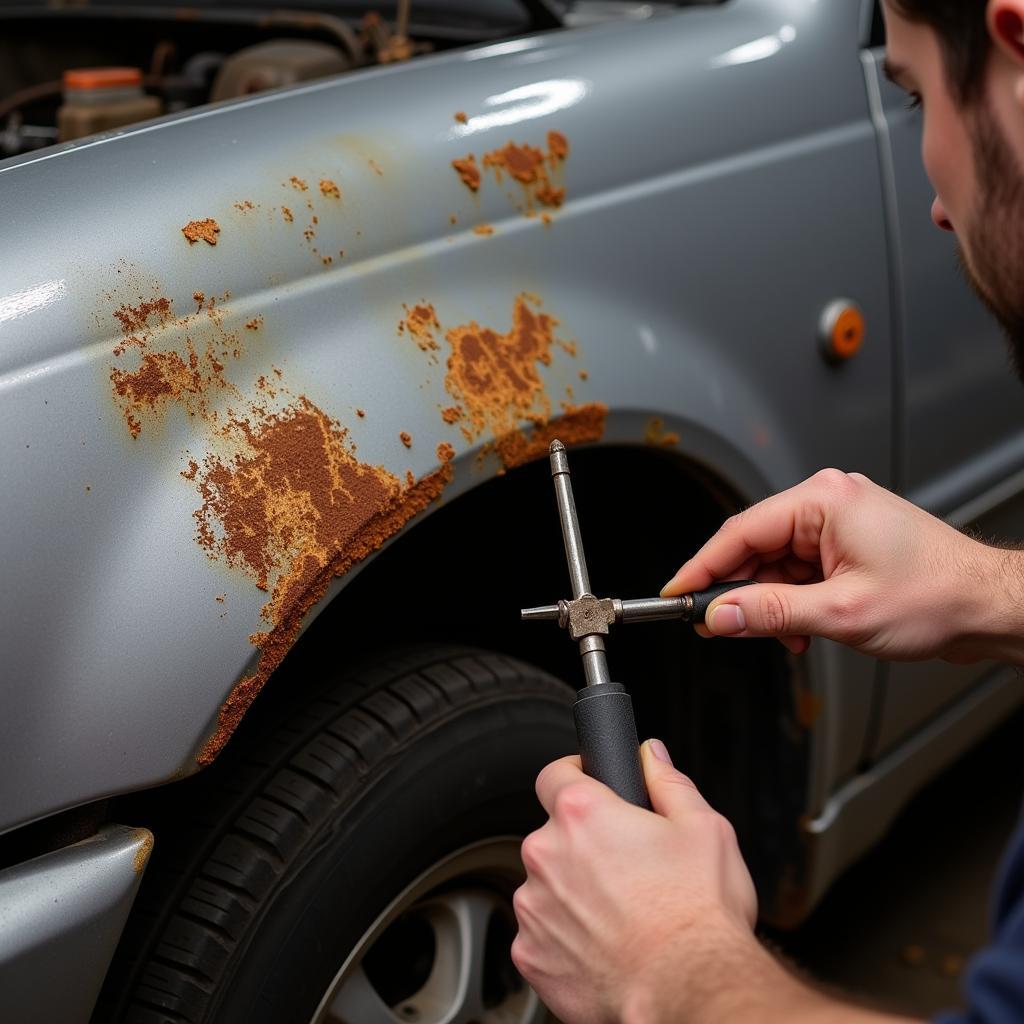Maintaining your car regularly is crucial to its lifespan and performance. But how often should you actually be taking your car in for maintenance? The answer is not one-size-fits-all, as it depends on various factors such as your car’s make and model, driving habits, and overall condition. However, adhering to a consistent maintenance schedule can significantly extend your vehicle’s life and prevent unexpected breakdowns.
Understanding Car Maintenance Schedules
Car manufacturers recommend specific maintenance schedules based on mileage or time intervals. These schedules typically include routine services like oil changes, tire rotations, air filter replacements, and inspections of various components. Following these guidelines helps ensure your car is running efficiently and safely.
Key Car Maintenance Tasks and Their Frequency
Here are some key car maintenance tasks and their recommended frequencies:
Oil Changes
How often: Every 3,000-5,000 miles or every 3-6 months, whichever comes first.
Why it’s important: Engine oil lubricates and cools moving parts, preventing wear and tear. Regular oil changes help remove contaminants and maintain optimal performance.
Tire Rotation
How often: Every 5,000-7,500 miles.
Why it’s important: Tire rotation ensures even wear and tear across all tires, extending their lifespan and improving handling.
Air Filter Replacement
How often: Every 12,000-15,000 miles or every 12 months.
Why it’s important: A clean air filter allows your engine to breathe properly, enhancing fuel efficiency and performance.
Brake Fluid Flush
How often: Every 2-3 years.
Why it’s important: Brake fluid absorbs moisture, which can affect braking performance. Flushing the system removes contaminants and maintains optimal braking efficiency.
Coolant Flush
How often: Every 2-3 years or every 50,000 miles.
Why it’s important: Coolant prevents engine overheating. Regular flushes ensure the coolant is circulating effectively and maintaining optimal temperature levels.
Spark Plug Replacement
How often: Every 30,000-100,000 miles depending on the type of spark plug.
Why it’s important: Spark plugs ignite the fuel-air mixture, and worn-out spark plugs can affect engine performance and fuel efficiency.
Transmission Fluid Flush
How often: Every 50,000-100,000 miles.
Why it’s important: Transmission fluid lubricates and cools the transmission, preventing wear and tear. Regular flushes help maintain smooth gear shifts and prevent transmission problems.
Battery Inspection
How often: Every 6 months.
Why it’s important: A weak battery can affect starting and overall performance. Regular inspection helps identify any issues early and prevent costly repairs.
Factors that Affect Maintenance Schedules
While the above recommendations provide a general guide, several factors can influence your car’s maintenance needs. These include:
- Driving conditions: Frequent stop-and-go traffic or heavy towing can increase wear and tear on your car, requiring more frequent maintenance.
- Climate: Extreme temperatures can impact your car’s performance and require adjustments to maintenance schedules.
- Driving style: Aggressive driving can put more stress on your car, leading to faster component wear.
- Vehicle age: Older cars typically require more frequent maintenance than newer models.
- Car manufacturer recommendations: Always consult your car’s owner’s manual for specific maintenance schedules and recommendations.
How to Track Your Car’s Maintenance
- Keep a maintenance log: Record all maintenance services performed, including date, mileage, and any issues identified. This log will help you track your car’s maintenance history and make informed decisions about future services.
- Use a car maintenance app: Many apps are available to help you track your car’s maintenance schedule, send reminders for upcoming services, and store service records.
Should I DIY or Take My Car to a Mechanic?
Whether you DIY or visit a mechanic for car maintenance depends on your skills, experience, and comfort level.
“While some basic maintenance tasks are relatively simple, it’s crucial to be aware of your limitations and seek professional help for complex repairs,” states John Smith, a veteran car mechanic with 25 years of experience.
Here’s a guide to help you decide:
- DIY: Simple tasks like checking fluids, changing air filters, and topping up fluids are generally safe to do yourself with proper knowledge and tools.
- Mechanic: Complex tasks like oil changes, brake repairs, and transmission maintenance are best left to professionals.
Conclusion
Regular car maintenance is essential to keeping your vehicle running smoothly and safely. By following a consistent maintenance schedule, you can prevent unexpected breakdowns, extend your car’s lifespan, and enjoy a more reliable driving experience.
Remember, preventative maintenance is always cheaper than costly repairs. If you have any questions or concerns about your car’s maintenance needs, don’t hesitate to contact a professional mechanic.
Contact AutoTipPro for professional car maintenance and repairs:
- Phone: +1 (641) 206-8880
- Office: 500 N St Mary’s St, San Antonio, TX 78205, United States
FAQ
Q: How often should I get an oil change?
A: Typically every 3,000-5,000 miles or every 3-6 months, whichever comes first.
Q: How often should I rotate my tires?
A: Every 5,000-7,500 miles.
Q: What are some signs that my car needs maintenance?
A: Unusual noises, decreased performance, warning lights on the dashboard, and fluid leaks are all signs that your car may need attention.
Q: How can I find a reliable mechanic?
A: Ask for recommendations from friends and family, read online reviews, and look for shops with certifications from reputable organizations.





Leave a Reply